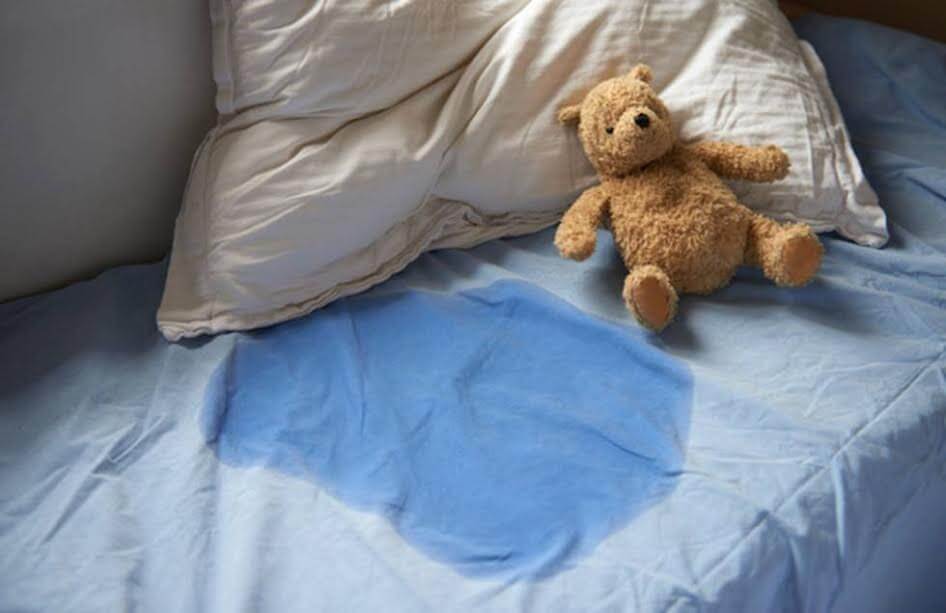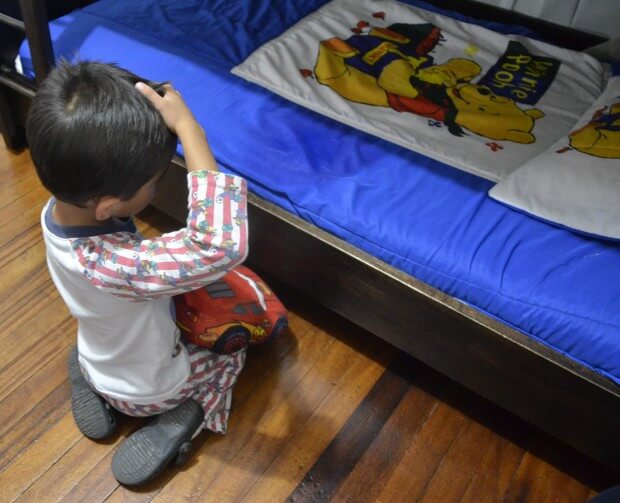Why Children Still Wet the Bed

Some children can control their potty habits during the day but not at night. Although this seems simple to understand, for parents who have to get up in the middle of the night to change the bed sheets because their child has wet the bed, it isn’t that simple.
Apart from considering what the parents feel during this, it’s important to consider what the child feels when he realizes he is still wetting the bed.
Parents worry about this problem. They don’t know why their child, who can control his or her bladder during the day, cannot control it at night.
The frequently-asked question is, “Why is my child still wetting the bed now that they’re older?” In this article, we will see why your child still wets the bed and how you can help him stop it.
Reasons why a child still wets the bed
When children are quite young, parents assume this problem must be related to the maturity of the bladder. But over time, the child grows and the problem is still there. In many cases there are children who used to wet the bed but can now control it.
However, there are some who continue to do so even in adolescence, and this is a problem for them more than anyone.
A child who wets the bed doesn’t do it for fun, nor to annoy anyone or to be lazy. Nor is it a mental or learning problem. In most cases it’s due to a physical or psychological problem.
Specialists have pointed out some reasons why older children may still wet the bed:
- Because they cannot wake up when they have a full bladder.
- They produce much more urine while asleep than other children.
- The bladder capacity of some children is less than that of others.
- Because they are going through a situation that alters their emotional state, such as the birth of a sibling, separation of parents, death of a relative, etc.
There can be a wide variety of reasons as to why a child continues to pee in bed. It is essential to find the cause in order to create a solution.
Consequences for the bed-wetting child

Wetting the bed is a problem for children. They feel ashamed, because they know they shouldn’t be doing this at their age. And if other kids were to find out, they would make fun of them, so they stop going to sleepovers.
Children also develop a sense of guilt, as they see their parents have to change the sheets, clean them up, give them a change of clothes, etc., every time they pee in bed.
As a result, the child’s self-esteem is damaged. Other psychological problems can appear, such as sadness, anxiety or fear. The role of the parents is to transmit tranquility and understanding to the child, but never scold and speak to him in a way that makes him try to solve his problem.
What can parents do for a child who wets the bed?

- Do not scold or punish for bed wetting; they don’t want to do it.
- Be very aware of what is said, to avoid emotional damage.
- To always motivate them, reinforcing the nights they don’t pee and encouraging them to continue.
- When they have to pee during the day, encourage them to wait a little bit to experience the sensation of a full bladder. This way they can recognize when they have to go to the bathroom.
- When going to pee, tell them to cut the stream short for a few seconds to help build voluntary control of the sphincters.
- Together with your child, put a sticker on the calendar when he wakes up without having wet the bed. If he gets three stickers, for example, on three consecutive days, promise a surprise. When three days are well under control, increase to more days to get the reward.
Bed wetting has a solution. No adult wets the bed, unless they have some sort of illness. You must be very patient and avoid anger and frustration, which could hurt the child.
If you follow these tips, the problem will certainly improve. And if not, you can always go to a professional who is sure to guide you and help solve the issue for good.
All cited sources were thoroughly reviewed by our team to ensure their quality, reliability, currency, and validity. The bibliography of this article was considered reliable and of academic or scientific accuracy.
- Ramírez-Backhaus, M., Martínez Agulló, E., Arlandis Guzmán, S., Gómez Pérez, L., Delgado Oliva, F., Martínez García, R., & Jiménez Cruz, J. F. (2009). Prevalencia de la enuresis nocturna en la Comunidad Valenciana: Sección infantil del estudio nacional de incontinencia. Estudio EPICC. Actas Urológicas Españolas, 33(9), 1011-1018. http://scielo.isciii.es/pdf/aue/v33n9/14_origina10.pdf
- Saieh, A. C., Álvarez, S. C., & Lucero, A. Y. (2015). Enuresis en niños: frecuencia y antecedentes familiares. Revista Médica Clínica Las Condes, 26(1), 109-112. https://www.sciencedirect.com/science/article/pii/S071686401500019X
- de Miguelsanz, J. M., de Armentia, S. L. L., Fernández, L. R., Benavides, M. P., Hinojal, M. T., Martin, G. M., … & Iglesias, E. A. (1996). Análisis epidemiológico de la secuencia de control vesical y prevalencia de enuresis nocturna en niños de la provincia de León. An Esp Pediatr, 44(6), 561-567. https://www.aeped.es/sites/default/files/anales/44-6-9.pdf
This text is provided for informational purposes only and does not replace consultation with a professional. If in doubt, consult your specialist.








